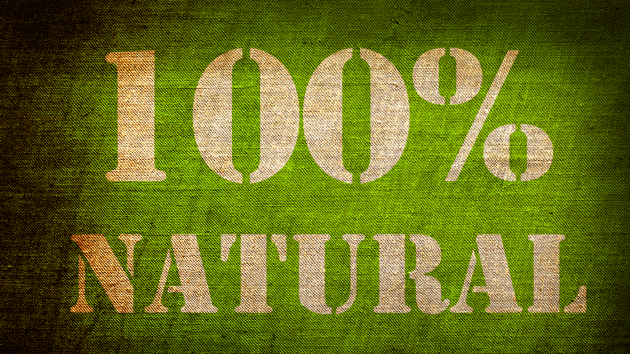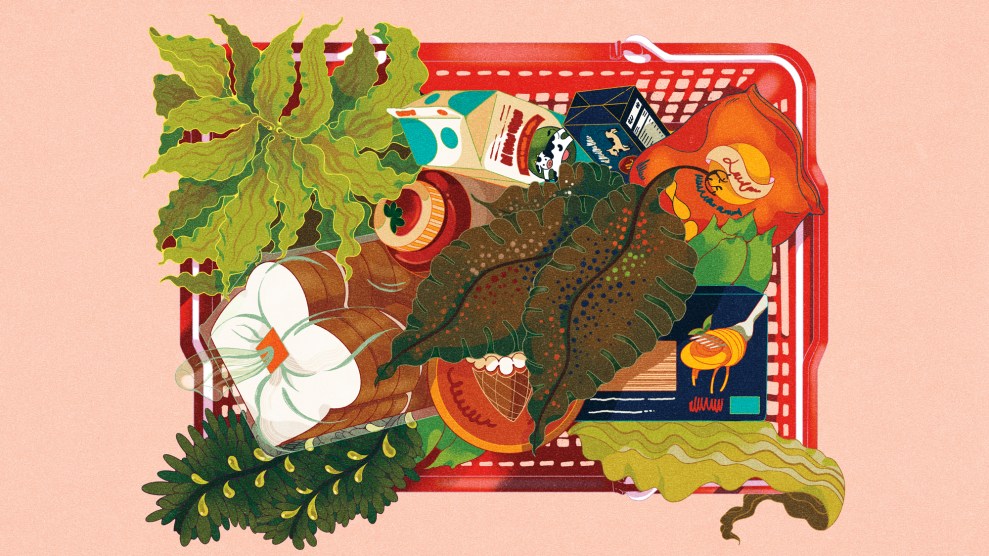
<a href="http://www.shutterstock.com/pic-123126883/stock-photo--natural-sign-on-old-linen-background.html?src=9P_4wxaNLEtosDxvlD2JAA-1-43" target="_blank"><span>Piotr Krzeslak </span></a>/Shutterstock
Last year, according to Nielsen, foods labeled “natural” generated $43 billion in sales. That’s more than five times the figure for foods carrying an “organic” label ($8.9 billion). A new Consumer Reports survey of 1,000 people found that two-thirds of respondents believed that a “natural” label meant that a food contained:
- No artificial materials during processing
- No pesticides
- No artificial ingredients
- No GMOs
More than half of those surveyed said that they specifically looked for a “natural” label on their foods.
There’s just one problem: There are no real federal regulations around the word “natural.”
According to the USDA, “natural” meat, poultry, and egg products must be “minimally processed and contain no artificial ingredients.” But the agency doesn’t go on to define “artificial.” Meat from livestock fed genetically modified corn, for example, can still be labeled “natural,” as can animals raised with regular doses of antibiotics. And the USDA has no regulations at all for labeling natural foods that do not contain meat or eggs.
Meanwhile, the FDA just has an informal policy that it issued in 1993, which gently recommends that manufacturers use the term “natural” if “nothing artificial or synthetic . . . has been included in, or has been added to, a food that would not normally be expected to be in the food.” In January 2014, the FDA “respectfully decline[d]” requests by three federal judges asking the agency for a decision on whether GMO ingredients could be used in foods labeled “all-natural.” That decision led one of the judges to terminate a lawsuit against General Mills’ Kix cereal, which, plaintiffs said, carried an all-natural label despite its use of genetically modified corn.
Even with the lack of regulation, plaintiffs can sue companies individually for false advertising—and in recent years, consumers have done just that. In 2013, PepsiCo. agreed to a $9 million class action settlement fund after plaintiffs complained about Naked Juice’s “all natural” labeling that belied ingredients like genetically modified soy.
Attorney Stephen Gardner of the Center for Science in the Public Interest told the news site Real Clear Politics earlier this year that there have been around 50 “natural label” lawsuits in the past decade targeting products from Kraft Foods’ Crystal Light “all natural” lemonade mix to Pepperidge Farms’ Goldfish (which, plaintiffs said, contained ingredients from genetically modified soybeans). However, said Gardner, this list “only scratches the surfaces of the number of companies that are making these claims.”
“There’s so much green noise out there,” says Urvashi Rangan, who directs the Consumer Safety Sustainability Group at Consumer Reports. “Labels can only succeed if you get rid of the noise.”












